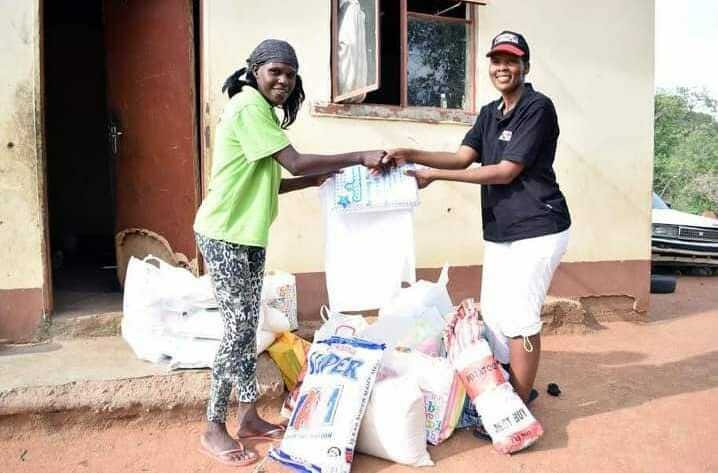
Onneile Setlalekgosi-Ramasilo is a female journalist in Botswana who currently writes for the Midweek Sun and the Xinhua News Agency in China.
She witnessed the majority of the lawsuits while working as the star reporter for Botswana's popular tabloid, The Voice Newspaper.
Winston Mwale, AfricaBrief Editor-in-Chief, speaks to Onneile in this exclusive interview.
Winston (W): What motivated you to keep reporting and writing despite facing multiple lawsuits?
Onneile (O): I was driven by passion when I began my career shortly after graduating from university. I was ecstatic to see my byline in the newspaper and couldn't wait to keep going. Things changed, however, when I received my first lawsuit. That's when I realised what my job entailed. I kept writing stories in order to bring about change! Through my stories, I was able to make a difference for the less fortunate, the voiceless, and those denied justice. Making a positive difference in people's lives with the power of my pen and passion kept me writing even as I faced lawsuits.
W: How did you handle the legal challenges and financial burdens that came with being sued repeatedly?
O: I was passionate about my work, and I always followed ethics and exercised due diligence. I learned journalism ethics and always used them when working on my stories. Yes, the lawsuits made me anxious to the point where I couldn't sleep at night. Remember, it's my name on the line! I remained optimistic and sought advice from senior journalists and colleagues on how to deal with the pressure; fortunately, they advised that lawsuits are in the nature of journalism. It was almost obvious to me that people would go to court for the purpose of intimidating and instilling fear, not because they had valid grounds for their case!
W: What impact do you think your work has made, despite facing these obstacles?
O: I believe my work has inspired other journalists to report without fear of legal repercussions and to persevere in the face of adversity. Because many journalists have yet to defend their stories in court, it will continue to influence them to conduct thorough fact-checking before publishing articles! The fact that I was able to prevail in these litigation issues shows that conducting a thorough investigation and closing all gaps is sufficient defence in a court of law when it comes to defamation suits.
W: Can you share any specific stories or experiences that stand out as particularly challenging or rewarding in your career as a journalist?
O: I wrote a story about a minor who was raped and the suspect later gave her coins to buy maize snack chips. The perpetrator escaped punishment. I looked into the story and got a photo of the feared man. He was arrested after I published the story. Through the power of my pen, I was able to bring a fugitive to justice. Most of the time, I went to court to defend a story I wrote. I become nervous, but I keep my cool because there is no one else to stand in for me. In some ways, the experience has rewarded me because I know I will continue to make a difference through stories, and my desire to do so has grown

W: In your opinion, what role do journalists play in a democracy and how do they serve the public?
O: Journalists are the voice for the voiceless, the eyes of every society, and a watchdog who holds people accountable. They must always ensure that their sources are trusted and respected. My experience has taught me that journalists can be sued for their work at any time. As a result, journalists must report facts without fear or favour. To avoid litigation, journalists should balance their stories and avoid being biased.